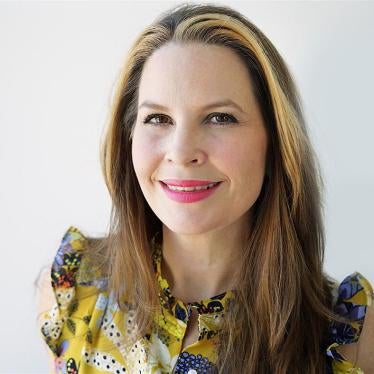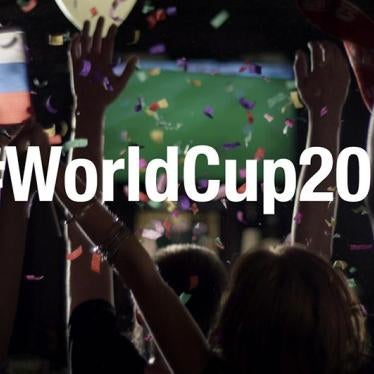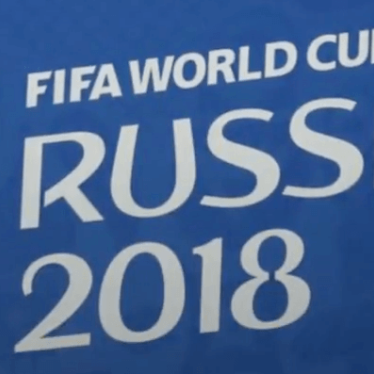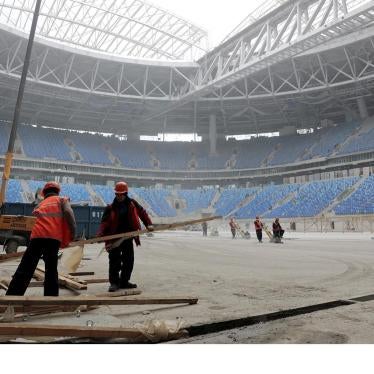By Minky Worden, Director of Global Initiatives at Human Rights Watch. ISHR has also commissioned a piece by FIFA on its new human rights defenders policy, which is available here.
When fireworks to kick off the 2018 FIFA World Cup in Moscow light up the skies on 14 June, I will not be thinking about the tremendous football matches that will unfold across Russia during the month-long tournament. I will be thinking about the migrant workers, human rights defenders, and reporters who helped make it happen.
What does the world’s largest football tournament have to do with human rights?
The dozen stadiums where the World Cup will be played were built or renovated by Russian and migrant workers. In 2016, FIFA for the first time put in place a labor-monitoring system, for which it deserves credit. But the system is largely opaque, so the burden of monitoring and exposing dangerous conditions and wage cheating fell on independent researchers like Semyon Simonov.
Simonov is an expert on migrant workers’ rights who had already documented labor abuses at the Sochi Olympics, including evidence that led to a government inspection that found that 6,175 workers had been cheated the equivalent of US$8 million in wages. Working as a consultant for Human Rights Watch, Simonov had interviewed workers on World Cup stadium construction sites in six Russian cities. He was investigating conditions in a seventh city, Volgograd, where a stadium was rising, when police detained him, in a way clearly designed to show they had him under surveillance and that he was to stop doing his work.
Russian authorities detained the wrong man. Simonov told me he views creating safe conditions for migrant workers as essential and I am sure he would be doing this work with or without a World Cup. But the World Cup led to the expenditure of billions of dollars for construction, and he was there to show that conditions were not what FIFA or Russia claimed. Simonov knows the system, and when the police took him to the station he bravely recorded everything and filed a lawsuit against the police.
Human Rights Watch research has shown that when mega-sporting events like the World Cup are awarded to a country with human rights problems like Russia’s mistreatment of migrant workers, the sports event will worsen those abuses by increasing their scale.
In this context, rights defenders and journalists are on the frontline in Russia. FIFA’s first specific human rights defenders policy and “complaints mechanism” for the World Cup is an overdue but important step. If swift action follows complaints, FIFA could help raise the bar for protections at mega-sports events.
According to Building Workers International (BWI), at least 21 workers died in construction site accidents during Russian efforts to deliver the World Cup. At least 110 North Koreans worked to build Zenit Arena, the St. Petersburg stadium, including one who died in the metal shipping container where he lived. This investigation, “The Slaves of St. Petersburg,” was reported by Josimar, a Norwegian investigative football magazine.
They won’t get any credit from FIFA, but without Josimar blowing the whistle on forced labor from North Korea, Russia’s World Cup — already proving fatal for too many workers — could have been much worse. However, we still don't know what happened to the North Korean workers — and we should.
The 2018 World Cup will undoubtedly produce heroes — players and teams whose football talent and field heroics dazzle.
But my nominees for World Cup trophies before the games begin are: the labor rights defenders at Building Workers International, the intrepid journalists at Josimar Football Magazine, and Semyon Simonov.
Without their vital work, these games would have been worse for human rights and the workers who have literally built the dozen World Cup stadiums where the action will unfold.
When the fireworks end, the true legacy may be a Russia more aware and respectful of the workers who built their World Cup stadiums and other facilities and the journalists and human rights defenders who through their vital work, protect everyone's rights.
----------
Minky Worden is the Director of Global initiatives at Human Rights Watch. Follow her on Twitter @MinkysHighjinks








